Research
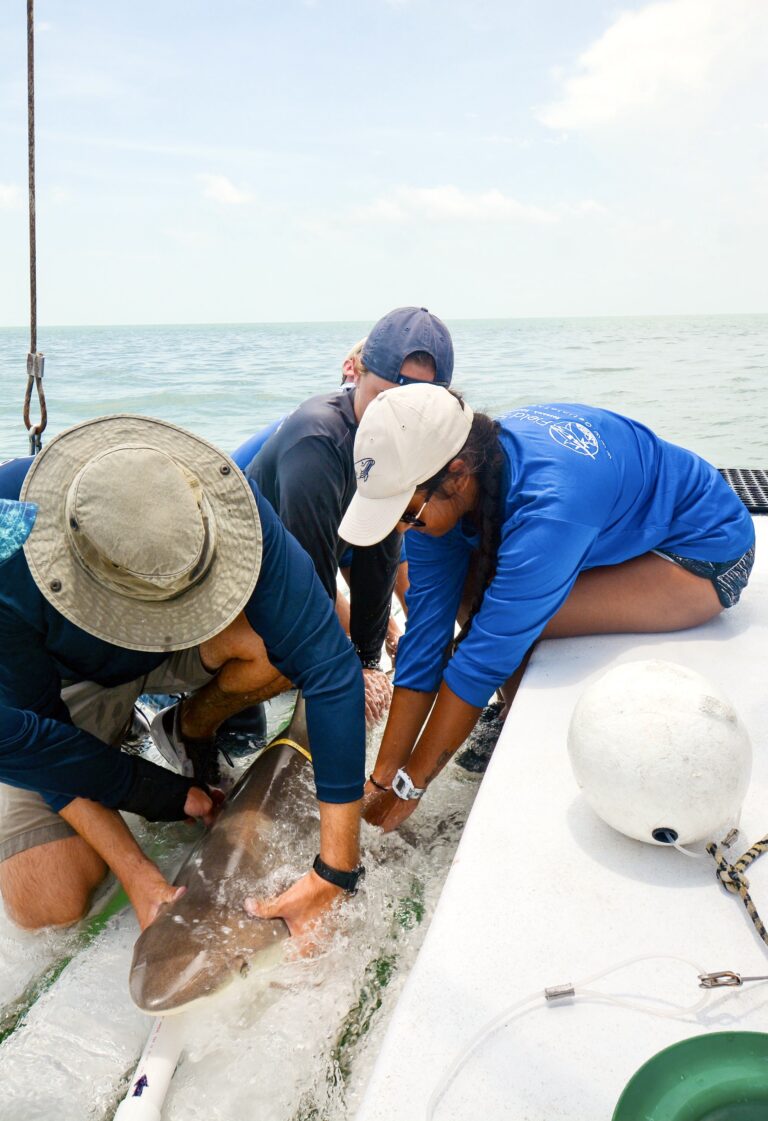
Thesis
September 2021 – August 2022
My Master’s thesis project focused on looking at ocean acidification effects on sharks. Among marine life impacted by ocean acidification, sharks are directly threatened due to their biological characteristics of slow growth, late maturity, and low fecundity. Among the many changes in chemical factors, changes in dissolved oxygen levels is one of the most common changes resulting from ocean acidification. This project focused on the effects that low dissolved oxygen can have on the movements of different shark species. Sharks have high physiological demands for oxygen which makes them vulnerable to changes in oxygen concentrations. Focusing on the Gulf of Mexico, dissolved oxygen was measured throughout the study area on the GOMECC-4 research cruise. Movements of previously tagged tiger sharks, white sharks, and mako sharks were monitored and compared to the dissolved oxygen measured. This project investigated if sharks are actively avoiding low oxygen areas and allowed for an improved understanding of how changes in ocean chemistry can affect top mobile predators.
GOMECC-4
September 2021 – October 2021
I worked as a research assistant under Dr. Chris Langdon where I was able to participate in the Gulf of Mexico Ecosystem and Carbon (GOMECC-4) 2021 Research Cruise. In September I spent 6 weeks on NOAA’s R/V Ronald H. Brown working as an Oxygen Analyst in NOAA’s Ocean Acidification Program. I analyzed dissolved oxygen concentrations within water samples taken from various depths in the Gulf of Mexico to understand the availability of oxygen within the water column. I analyzed these water samples by running titrations to determine the dissolved oxygen concentration. As oxygen is essential to life, it is critical to measure oxygen within the water to assess the productivity of the region. Oxygen is an important indicator of climate change effects so its change over time will provide a better understanding of how ocean chemistry is changing.
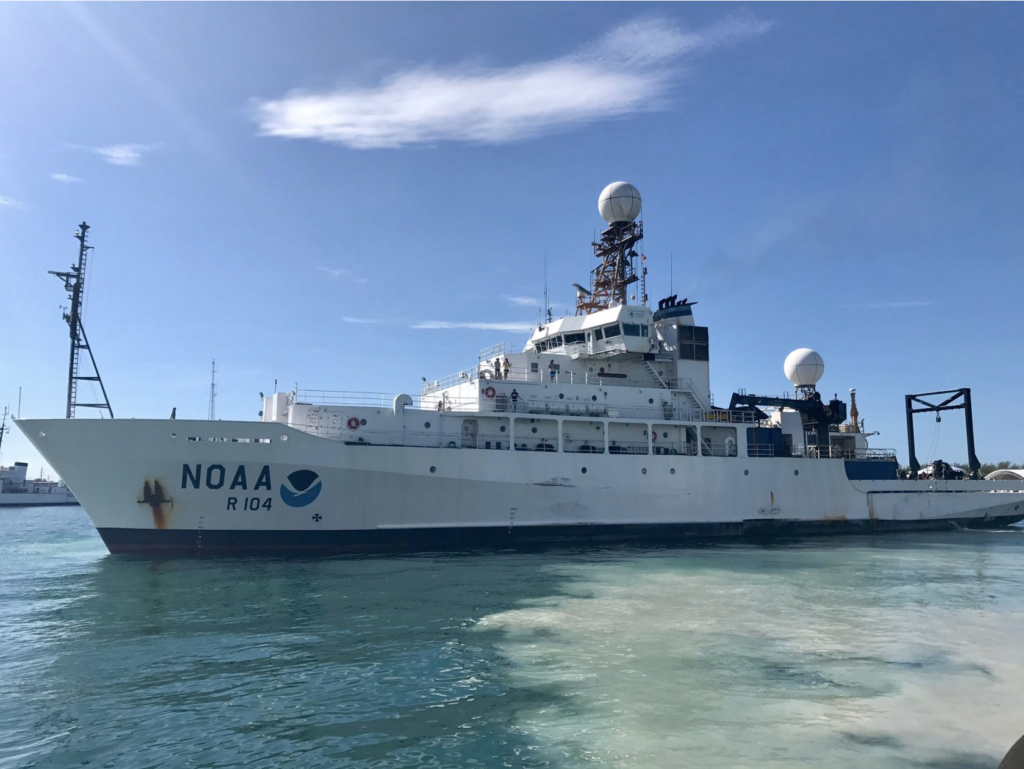
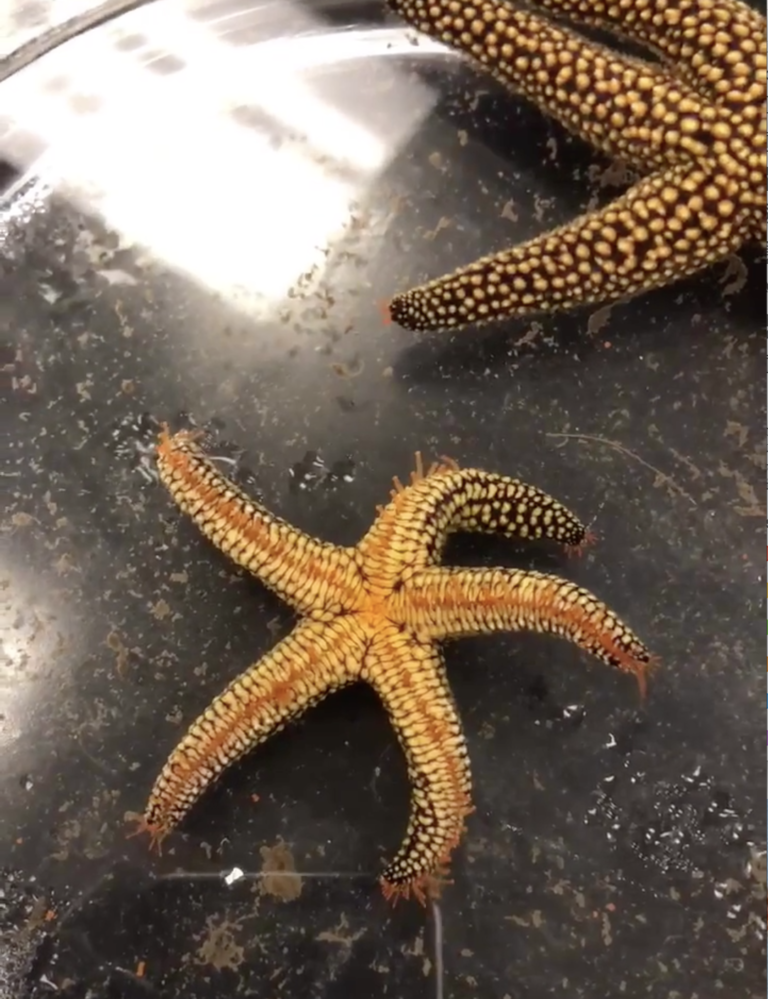
Righting of Sea Stars
October 2019 – December 2019
During my undergrad, I conducted a study assessing the effects of temperature on the righting behavior of brown spiny sea stars. Sea stars are keystone species having significant ecological roles frequently controlling the structure of the community they inhabit. Righting is a neuromuscular-mediated somersaulting behavior and is an essential part of their survival. Studies have shown that sea stars are vulnerable to thermal stress and considering the global rise of ocean temperature, sea stars are exposed to increased temperatures and have the potential to lose their righting capabilities. In this study, I observed the righting behavior of a sea star species native to waters of the Gulf of Mexico of Florida. I tested the effects of acute subjection to seawater temperature with a variety of temperature ranges and recorded the time taken to right themselves. This helps determine the impact of temperature increases globally due to climate change on the neuromuscular system of sea stars.
South African Shark Conservancy
June 2019 – October 2019
I had the opportunity to spend 2 months in Hermanus, South Africa as a research intern at the South African Shark Conservancy. I worked with the endemic species of South Africa including the pajama catshark and shysharks. Research techniques included analyzing BRUV (baited remote underwater video) footage, measuring and tagging sharks, and performing gastric lavage on sharks to determine their dietary habits. Along with other interns, I was able to conduct a study determining preferred bait of species and assessing biodiversity in South African waters by deploying and hauling BRUVs, and analyzing BRUV footage. I was also able to conduct a second study determining the healing rate of shysharks by measuring a wound on a shark daily. Sharks are known to have rapid healing rates and have superior healing capabilities.
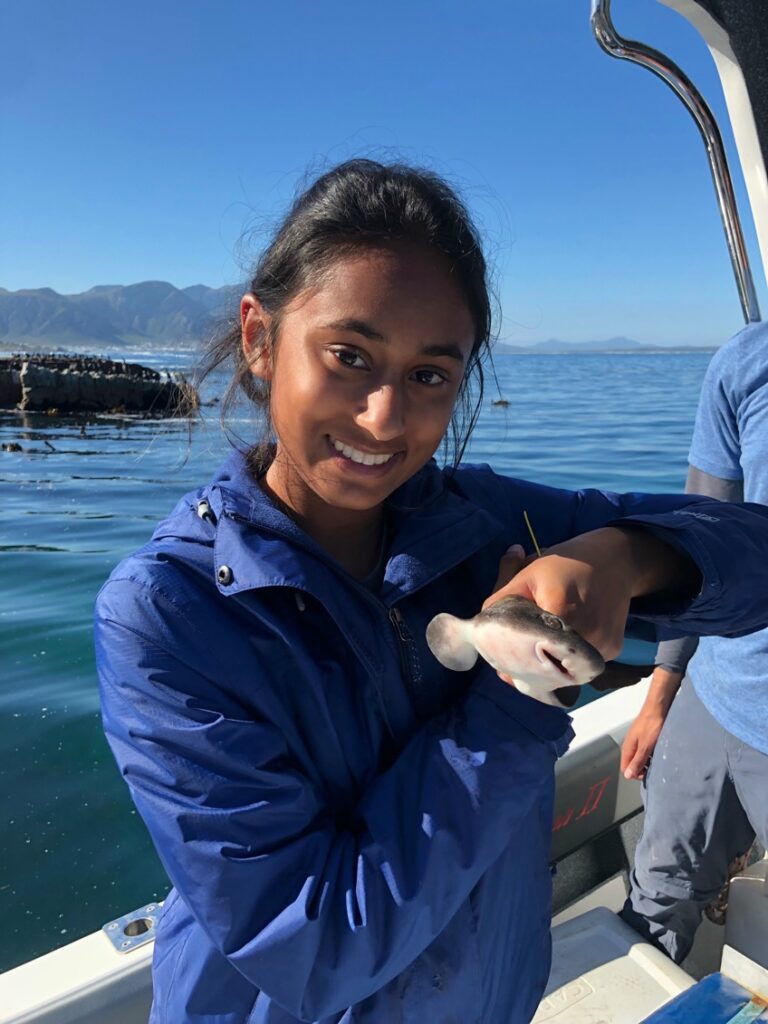
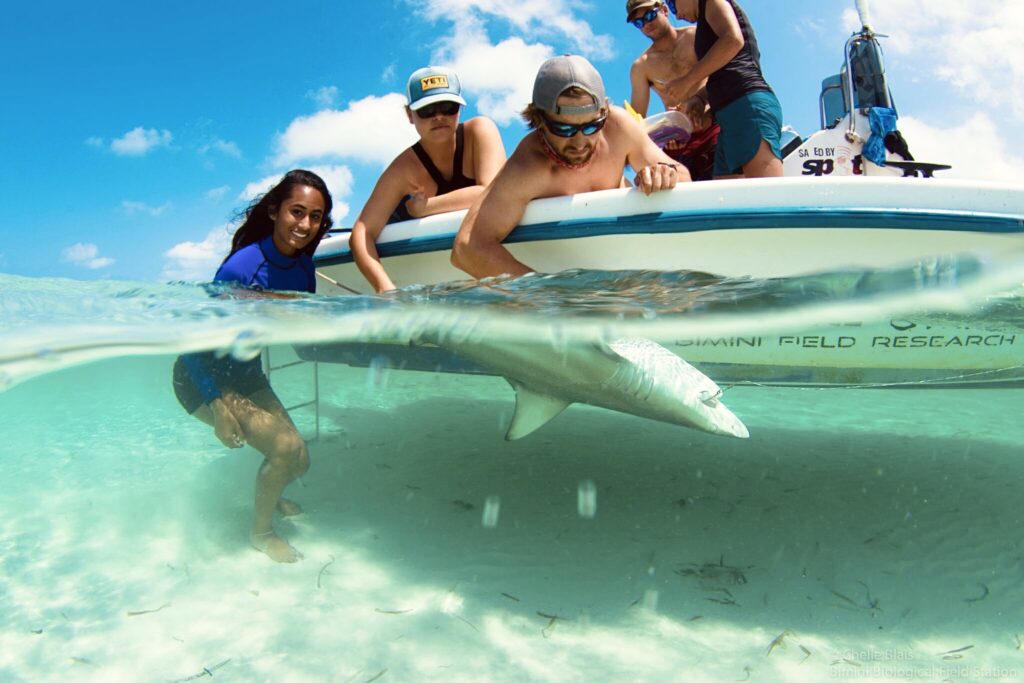
Bimini Biological Field Station
March 2018
During my undergrad, I had the special opportunity to participate in shark research at the Bimini Biological Field Station in Bimini, The Bahamas. I assisted in shark tagging and measuring techniques, deployed and hauled longlines, and participated in shark and stingray feeding. By learning these field and lab techniques, I was able to help assist with the labs ongoing research.